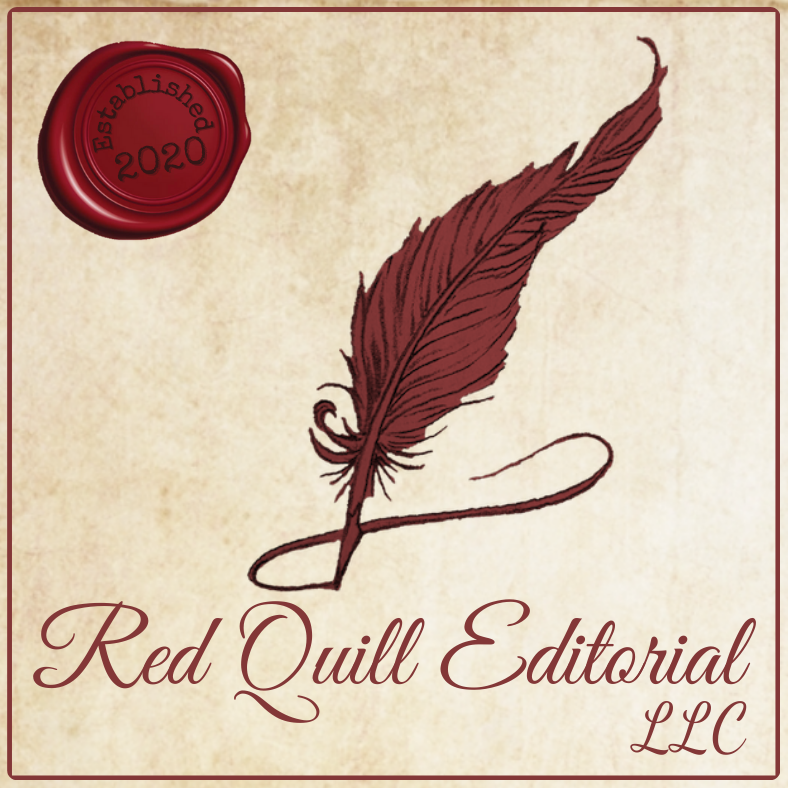Before You Publish (For Indie Authors)
First & Second Drafts
When you finish your first draft (the “down draft,” as author Anne Lamott calls it in her book Bird by Bird) I recommend that you read over your own work and self-edit for a more fleshed-out second draft (the “up draft”) before proceeding with the next steps. (Want to read more about what Anne Lamott has to say on Improving Your Craft?)
Developmental Editing vs Beta Readers
When you are done with your self-edits, it’s time to decide whether you want to hire a professional editor for developmental editing or seek out non-professional beta readers. You must decide which is more valuable to you—your money or your time. If you choose to go with beta readers, I recommend turning your manuscript into a PDF so it’s not easily copied.
| DEVELOPMENTAL EDITING | BETA READERS | |
| WHAT IS IT? | This type of editing looks at the big picture of your manuscript and is often recommended for new authors to help refine their writing craft. Through this process, you will learn how to develop and improve your manuscript, and increase your skill and understanding of the craft of writing. Developmental editing ensures that the story makes sense and the author addresses larger issues. It also focuses on overall structure, hooks and prompts of each chapter, character development, point of view, plot, setting, proper pacing, consistency, transitions, dialogue, and adding/deleting/rearranging of scenes. | The goal of a beta reader is to read for plot holes, consistency issues, character development, and setting. They may also be able to provide insight with fact-checking. Depending on your topic, you may want to seek an Authenticity Reading at this time as well (people who can personally relate to the race, religion, disability, etc. that is depicted in your book and attest to its authenticity or advise you on how to improve in that area). |
| MONEY VS TIME | Developmental editing is completed by a professional editor. It can get quite costly, but you can rest assured that a professional is taking the appropriate time and attention to give you sincere constructive criticism and feedback, with a guarantee that they will follow through for you. Your editor should have a contract in place that guarantees your intellectual property is and always will be yours and prevent any worries of your hard work being stolen. You will also only need to find one person as opposed to many beta readers. | Beta readers are a more budget-friendly option than paying for developmental editing. While not professionals like editors are, you shouldn’t have to pay for beta readers. Often, you exchange manuscripts and read for a mutual benefit. This will save you a pretty penny, but will cost you in time. You will also need to find several beta readers, keeping in mind that not all will follow through with feedback or their criticisms may not be constructive. They may not know how to articulate beyond, “I didn’t like this part,” while a professional editor will be able to tell you the all-important “why” and offer advice on how to improve it. |
| HOW DO I GET STARTED? | Interested in hiring an editor? Contact Me! I offer multiple ways to receive a discount and a payment plan option to help you get the editing you deserve. Check out my discounts, payment plan, and services & rates. | If you want to go with beta readers, try searching social media sites for author groups or reader communities like Wattpad in order to find beta readers. Ideally, you want to find beta readers who fit your target audience. You may also want to consider obtaining a copyright before sending off your manuscript to strangers. A copyright protects even unpublished work (here’s a Reedsy article about How to Copyright a Book). |
Revisions
Time for your third “dental draft” (where you check each tooth). Use the feedback and constructive criticisms from your developmental edit or beta readers to improve your manuscript. Try to maintain an open mind as to what your editor or the beta readers are telling you. That’s the whole point, after all—to see what changes, fleshing out, or corrections are needed before you finalize and publish your book, which will ultimately increase the likelihood of your book’s success.
Editing
Now it’s time to polish and edit your manuscript. If you haven’t hired an editor yet, now is the time. Don’t skip this step! You are too close to your own work to edit it yourself. You will miss details, no matter how good of a writer you are. After all, even editors hire other editors for their own writing materials (yes, I hired someone else to proofread my own book Horse Cents)!
At this stage, you should be looking for either a Line/Copyeditor, or at the very least, a Proofreader. (I’d love to help! Contact Me to get started.)
Cover Design
Your cover needs to reflect your genre and your particular story. It is possible to design your own cover on certain programs, such as Canva, but you better know enough about what you’re doing or you could really screw yourself over. If you have written a romantic comedy but the cover screams thriller instead, you’re going to draw in the wrong readers and get poor reviews as a result. Hiring a professional will ease this problem. You should still get the final call on the cover, but the pros can help guide you in the right direction. (Need help finding a cover designer?)
Formatting & Publishing Platforms
Your book must fall under certain parameters, formatting-wise, to comply with your publishing platform. The first step should be to decide which publishing platform you want to use (learn more about Amazon KDP and IngramSpark platforms as well as how to purchase your ISBNs in my article titled The Ins & Outs of Self-Publishing). Decide whether you will be selling your book in eBook, paperback, hardcover, or a combo of those choices. From there, you will need to read their regulations and ensure your book is formatted properly in each case. If you need help with this step, once again, there are professional formatters who can help. If you want to try your own hand at it and aren’t looking for anything super fancy, many of these self-publishing platforms allow you to use book builder tools directly within their platform for formatting.
Copyright Your Hard Work
Don’t forget to copyright your hard work! Simply putting the copyright notice in your book doesn’t protect you if you ever have to go to court over someone trying to claim your work as their own. You’ve invested the time and money into yourself this far. Do not skip this step!
For those in the US, you will want to register your copyright with the Library of Congress. To do this, scroll down to where it says Register Your Works and click on Learn More. On this next page, scroll down to where it says Literary Works and click on Learn More again. Scroll down and click on Register a Literary Work. You will now be able to create an account so you can log in anytime you need to add a new copyright or change your information. Proceed with registering your copyright for your book.
There are links at the top with helpful tips and information. On the left, you will select Standard Application under where it says Register a Work. At the top, select Start Registration. Type of work should be Literary Work. Check the box at the bottom and click Continue at the top. Click on New. Select Title of Work Being Registered, type in the title of your book, click Save at the top, and then Continue.
Because everyone’s situation is different, I can’t really walk you through this process past this point. Just ensure you are completing the appropriate steps for your specific situation. When it asks for the copyright claimant and contact information, look for the Add Me buttons to save yourself some time. Also, on the left of the screen, you will see a list of steps to complete. When you finish each one, a checkmark will appear. You can click on any of them to jump around if you want to or take it step-by-step. You will be able to review all the information you entered for accuracy just before you click Add to Cart.
As of the last update to this article (January 2023), the fee to register your copyright is $65. You can pay by credit card or directly from your bank account. After you pay, you will receive an email from the Library of Congress with a link on how to upload or mail your manuscript. Don’t forget to do this step as it is necessary in order to complete your copyright certification. You can also access this information by clicking Continue on the payment confirmation page.
Market Yourself
Throughout this whole process, you will need to be marketing your book and building up hype. It’s difficult for many people to market themselves. The ever-present monster of self-doubt and imposter syndrome likes to tell you lies, such as you aren’t good enough and no one will like your book. You’ve got to push past that and change the narrative. Look in the mirror and tell yourself every single morning that you are strong, brave, and wonderful, because really, you are. Not everyone can say they wrote a book! That takes a lot of time, sweat and tears, commitment, hard work, and vulnerability (or strength, depending on how you view it). It’s okay to pat yourself on the back and sing your praises. In fact, you have to if you want to successfully market your book.
Consider submitting your book to Kirkus for a professional review of your book that could garner some attention. Get on social media, create an author webpage, and consider sending an electronic newsletter. Build promotions and spend some money on ads. If you’re truly too uncomfortable to do this yourself, consider hiring a professional to help you. Marketing plays a key factor in your book’s success, and even if you write a fantastic book, it won’t sell if people don’t know it exists. So, in one way or another, you need to get out there and shout about it to the world!
ARC Readers
At this point, your manuscript should be edited and ready to publish. ARC is an acronym for “advanced review copy.” You give out free copies of your book in an effort to seek honest reviews prior to it being publicly available. Before sending out your manuscript to your ARC readers, be sure to create a PDF version of it so that it is not easily copied. I also recommend including a title page that includes the verbiage “Advanced Copy—Not for Resale.” If you have not gotten a copyright yet, consider doing so now (here’s a Reedsy article about How to Copyright a Book).
Keep in mind that finding ARC readers can be just as tedious as finding beta readers. You may get a small fraction of them actually following through with a review. Aim for at least 50 ARC readers and hope that some of them send you honest reviews. (Want help with the search for ARC readers?)
Published!
Congratulations! You’re finally ready to publish! Don’t forget to continue marketing your book and building up your readers, especially if you plan to publish more books. You’ve got this!
Red Quill Editorial LLC

Think you might be ready for an editor? If you’re unsure what type of editing you need, want to know how much it might cost, or simply have a question for me, Contact Me today. I am happy to discuss your manuscript with you!
Return to the Tips for Writers index


